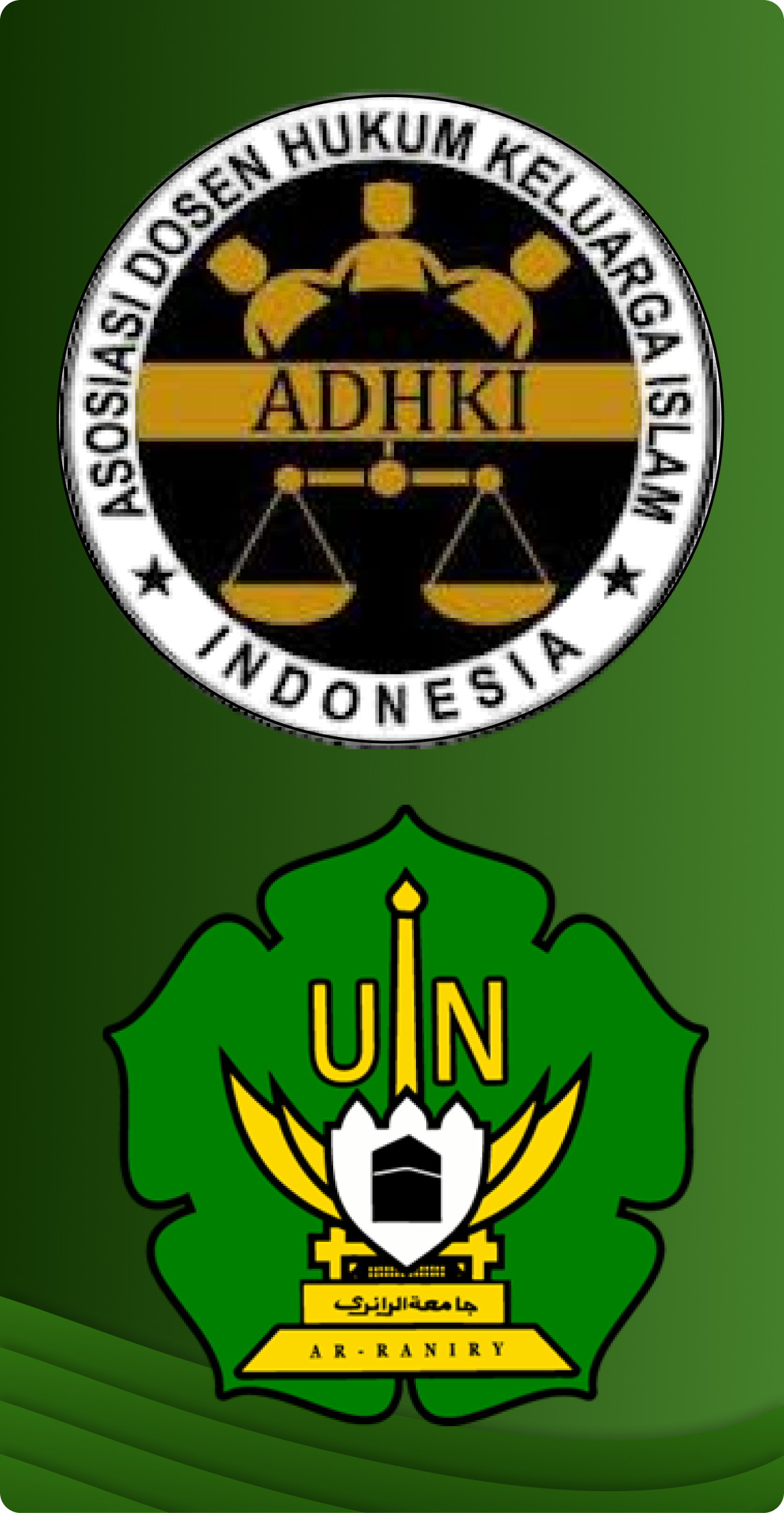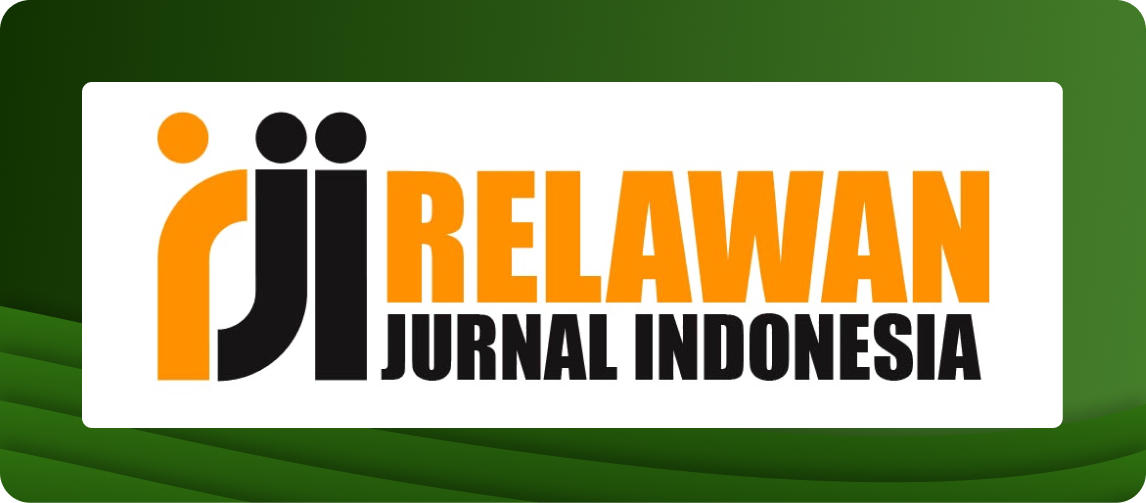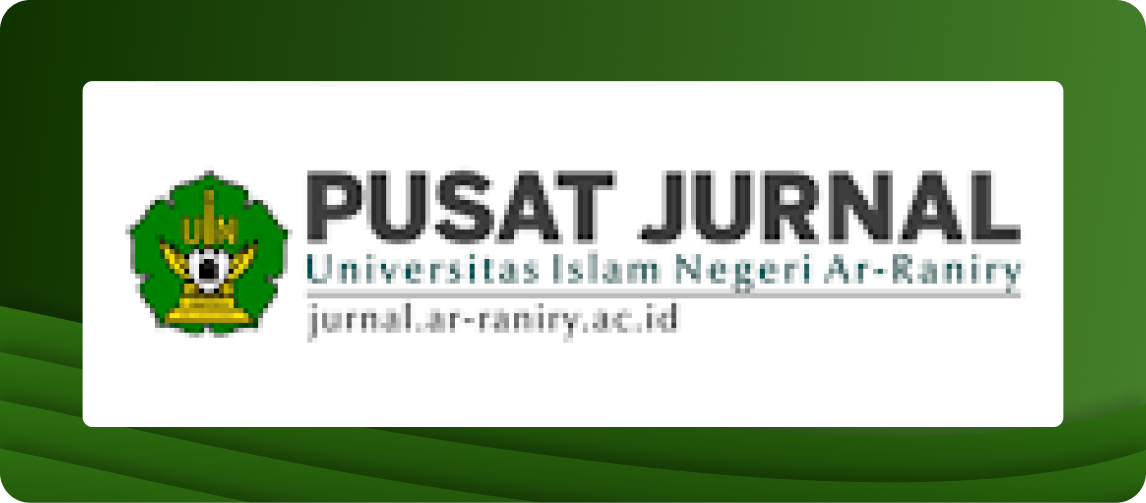Mappanre Adek and Strengthening Social Bonds in Bulukumba Community, South Sulawesi
Living Qur’an and Anthropology Perspective
DOI:
https://doi.org/10.22373/54mkwr51Keywords:
Mappanre adek, acculturation, tradition, social bond, living Quran, anthropologyAbstract
The Mappanre adek tradition is not only a traditional identity but also a religious identity practiced by the Bugis-Makassar community in Bulukumba, South Sulawesi. This study aims to discuss the strengthening of social ties through the Mappanre adek tradition from the perspective of the living Qur'an and anthropology. The article is important because it explains how Islamic values are acculturated with traditional ceremonies among the Bulukumba community, South Sulawesi. This study uses an empirical legal method analyzed with the theory of Islamic legal anthropology. Data refers to the results of interviews and literature studies. Interviews were conducted to validate data on key informants, while literature refers to journal articles, books and research fields related to the focus of the discussion. The article concludes that it shows that traditional ceremonies, in addition to functioning as a glue for society, also contribute to the sustainability of social order through the integration of the community involved in the ceremony. This traditional ceremony exemplifies an attitude of mutual respect and sharing happiness. In addition, this traditional ceremony also structures social classes that almost never change. In the context of living Qur’an and anthropology, the tradition of mappaenre adek is an implementation of the values of the Quran, such as ukhuwah Islamiyah, litaarafu, mutual respect practiced by the community. Tradition as custom contains beneficial values, namely maintaining social ties and social cohesion in society. So that the values of the Quran and local culture are able to create a harmonious acculturation and accommodation
References
Journal and Books
Abbas, Abbas. “Mistisisme Muslim Pesisir: Studi Atas Ritual Masyarakat Muslim Bajo Sulawesi Tenggara.” Al-Izzah: Jurnal Hasil Penelitian, 2022. https://doi.org/10.31332/ai.v0i0.3731.
Abd Rahman, R., et.al., “Local Wisdom in Economic Practice: An Empowerment Fiqh Analysis of the Tesang Tradition of the Buginese and Makassarese.” Cogent Social Sciences 9, no. 1 (2023). https://doi.org/10.1080/23311886.2023.2194112.
Abdun Nasir, Mohamad, “Revisiting the Javanese Muslim Slametan: Islam, Local Tradition, Honor and Symbolic Communication,” al-Jamiah 52, No. 2 (2019). DOI: https://doi.org/10.14421/ajis.2019.572.329-358.
Achmadi, Achmadi. “Penegakan Hukum Pidana Terhadap Praktek Perjudian Dalam Ritual Tiwah Di Kabupaten Kapuas.” Anterior Jurnal 15, no. 2 (2016). https://doi.org/10.33084/anterior.v15i2.54.
Ajemain, Ajemain, Sulsalman Moita, And Abdul Alim. “Fungsi Ritual Monahu Ndau’ Pada Orang Tolaki Di Desa Parauna Kecamatan Anggaberi Kabupaten Konawe.” Jurnal Penelitian Budaya 4, no. 1 (2019). https://doi.org/10.33772/JPEB.V4I1.6614.
Akhmad Marhadi, Tri Miarsih. “Fungsi Ritual Menyambut Hari Raya Nyepi Pada Orang Bali Di Desa Lambodijaya Kecamatan Lalembuu Kabupaten Konawe Selatan.” Etnoreflika 4, no. 3 (2015).
Annisa, Firdha, Nurhadi, and Siany Indria Liesyasari. “Ritual Unggahan Pada Komunitas Adat Bonokeling (Studi Kasus Pada Komunitas Adat Bonokeling Di Kabupaten Banyumas Menggunakan Teori Liminalitas Victor Turner).” Journal of Chemical Information and Modeling 53, no. 9 (2017).
Bentahila, Lina, Roger Fontaine, and Valérie Pennequin. “Universality and Cultural Diversity in Moral Reasoning and Judgment.” Frontiers in Psychology, 2021. https://doi.org/10.3389/fpsyg.2021.764360.
Budiono, I Nyoman, Ahmad Abu Bakar, Hasyim Haddade, Syarmillah Daily, and Hartina Husain. “Integrating Local Culture to Work Ethics: A Holistic Approach to Mitigating Problematic Financing in Islamic Banks.” BANCO: Jurnal Manajemen Dan Perbankan Syariah 6, no. 2 (2024). https://doi.org/10.35905/banco.v7i1.8784.
Cao, Bin, and Beichen Chen. “Ritual Changes and Social Transition in the Western Zhou Period (c.a. 1050–771 BCE).” Archaeological Research in Asia 19 (2019). https://doi.org/10.1016/j.ara.2018.04.002.
Charles, Sarah, “United on Sunday: The effects of Secular Rituals on Social Bonding and Affect,” PLOS One 16, No. 1 (2021). DOI: 10.1371/journal.pone.0242546
Collard, David. “The Materiality of Ecstatic Ritual: Altered States of Consciousness and Ritual in Late Bronze Age Cyprus.” In Exploring the Materiality of Food “Stuffs”: Transformations, Symbolic Consumption and Embodiments, 2016. https://doi.org/10.4324/9781315673851.
Daugey, Marie. “The Death Throes of Sacrificed Chicken: Triggering Critical Reflexive Stances on Ritual Action in Togo.” Religion and Society 9, no. 1 (2018). https://doi.org/10.3167/arrs.2018.090109.
Demmrich, Sarah, and Uwe Wolfradt. “Personal Rituals in Adolescence: Their Role in Emotion Regulation and Identity Formation.” Journal of Empirical Theology 31, no. 2 (2018). https://doi.org/10.1163/15709256-12341373.
Djawas, Mursyid, et.al., “The Integration Between Syara’ and Ade’ in Marriage Tradition Bugis Bone, South Sulawesi,” al-Ihkam 18, No. 2 (2023). https://doi.org/10.19105/al-lhkam.v18i2.10373.
Djawas, Mursyid, et.al., “Harmonization of State, Custom, and Islamic Law in Aceh: Perspective of Legal Pluralism,” Hasanuddin Law Review 10, No. 1 (2024). DOI: http://dx.doi.org/10.20956/halrev.v10i1.4824
Frishkopf, Michael. “Paralinguistic Ramification of Language Performance in Islamic Ritual.” Yale Journal of Music & Religion 4, no. 1 (2018). https://doi.org/10.17132/2377-231x.1099.
Fuadi Fuadi and Dian Popi Oktari, “Konsep Teologi Islam Dalam Pelaksanaan Tradisi Keumaweuh Dan Peusijuk di Kecamatan Labuhan Haji Kabupaten Aceh Selatan,” Jurnal Yaqzhan: Analisis Filsafat Agama dan Kemanusiaan 7, No. 2 (2021). DOI: 10.24235/jy.v7i2.8575.
Glynn, Ted, Bronwen Cowie, Kathrin Otrel-Cass, and Angus Macfarlane. “Culturally Responsive Pedagogy: Connecting New Zealand Teachers of Science with Their Māori Students.” Australian Journal of Indigenous Education 39, no. 1 (2010). https://doi.org/10.1375/S1326011100000971.
Guizzardi, Silvia. “Cultural Innovative Enterprises: Not Just Philantrophy.” China-EU Law Journal 7, no. 1–4 (2021). https://doi.org/10.1007/s12689-020-00087-7.
Gunawan, Shella Oetharry., Syamsul Bahri. “Impacts of Early Childhood Marriage in Indonesia Viewed from Child Protection Laws Perspectives”. El-Usrah: Jurnal Hukum Keluarga 6, No. 2 (2023): 362-380, https://doi.org/10.22373/ujhk.v6i2.20262.
Harahap, Anwar Sadat., Hardi Mulyono, A. Nuzul A. Nuzul, Milhan Milhan, Taufik Siregar. “Dalihan Na Tolu as a Model for Resolving Religiouss Conflicts in North Sumatra: An Anthropological and Sociological Perspective”. Samarah: Jurnal Hukum Keluarga dan Hukum Islam 7, No. 3 (2023): 1943-1970, https://doi.org/10.22373/sjhk.v7i3.13091.
Hariyadi, Muhammad, and Ali Mahfudz. “Karekteristik Komunikasi Nabi Muhammad Saw Berbasis Khithab Qul Dalam Al-Qur’an.” Al Amin: Jurnal Kajian Ilmu Dan Budaya Islam 4, no. 01 (2021).
Hunn, Lars Kristian, and Håkon Fyhn. “Building and Sustaining a Culture with a Mindset for Disruptive Performance: A Case-Study from Bispevika Norway.” In 27th Annual Conference of the International Group for Lean Construction, IGLC 2019, 2019. https://doi.org/10.24928/2019/0172.
Ibrahim, Abu Bakar. “Islamic Theological Teachings on Ecology.” International Journal of Buisness and Social Science 3, no. 13 (2012).
Jubba, Hasse., Sudirman, Suparto Iribaram, Wan Khairul Aiman bin Wan Mokhtar, Rusdi Rasyid. “Compromise of Islam and customary practices in the religious practices of the muslim community in Papua: a study of maqāṣid syari’ah.” Ijtihad: Jurnal Wacana Hukum Islam Dan Kemanusiaan, 24 No. 2, 305–330. https://doi.org/10.18326/ijtihad.v24i2.305-330.
Khalimovna, Khilola, and Nilufar Omonova. “Hashar: Unlocking Traditional Collective Works Practice as Integrated Cultured Islamic Philanthropy Model.” BANCO: Jurnal Manajemen Dan Perbankan Syariah 6, no. 2 (2024). https://doi.org/10.35905/banco.v6i2.11671.
Kholiq, Achmad,. Achyar Zein. “Fiqh Model of the Companions (Saḥābah) of the Prophet and its Influence on Abu Hanifah's Rational Fiqh and Malik's Traditional Fiqh”. Ahkam: Jurnal Ilmu Syariah 21, No. 1 (2021). 10.15408/ajis.v21i1.20043.
Kurniawan, Edi., Handesman Handesman, Rahmadi Rahmadi, Khairun Najib. “Early Marriage, Human Rights, and the Living Fiqh: A Maqasid al-Shariʻa Review”. Al-Risalah: Forum Kajian Hukum dan Sosial Kemasyarakatan 20, No. 1 (2020): 1-15, https://doi.org/10.30631/alrisalah.v20i1.565.
Krishnamurthy, Sukanya. “Rituals and the Participation of Urban Form: Informal and Formal Image Making Processes.” City, Culture and Society 7, no. 3 (2016). https://doi.org/10.1016/j.ccs.2016.05.005.
Latifah, Umi. “Unveiling Partnership Culture in Sharia Banking Regulations.” BANCO: Jurnal Manajemen Dan Perbankan Syariah 6, no. 2 (, 2024). https://doi.org/10.35905/banco.v6i2.9096.
Mahdaliyah, Andi Sukmawati Assaad, and Muhammad Tahmid Nur. “Islamic Law Accommodation for Social Interaction Within Temu Manten Tradition”. Al-Ahkam 34, No. 2 (2024). https://doi.org/10.21580/ahkam.2024.34.2.22835.
Siti Mahmudah. “The Contextualization of Sharia and Its Contribution to The Development of The Indonesian National Law”. Al-‘Adalah 16, No. 1 (2019): 17-40, https://doi.org/10.24042/adalah.v16i1.3393.
Manan, Abdul, et.al., “The Unity of Community in Cemetery: An Ethnographic Study of The Islamic Burial Rituals in Aceh, Indonesia,” Jurnal Ilmiah Islam Futura 24, No. 1 (2024). DOI: http://dx.doi.org/10.22373/jiif.v24i1.14965.
Maksum, Ali, Nur Azizah, Muhammad Afif, and Ahmad Sahide. “Literation of the Acculturation of Islamic Culture in Yogyakarta, Indonesia.” Proceeding International Conference of Community Service 1, no. 1 (2023). https://doi.org/10.18196/iccs.v1i1.12.
Rudi Mayandra. “Regulation of Marriage Dispensation Against Marriage of Children Under The Age of Post Decision of The Constitutional Court Number 22 / Puu-Xv / 2017”. Syariah: Jurnal hukum dan Pemikiran 20, No. 2 (2020): 187-200, https://doi.org/10.18592/sjhp.v20i2.4160.
Mony, Abdul Kadir. “Pelaksanaan Abda’u Terhadap Nilai Agama Di Desa Tulehu.” Fikratuna 8, no. 1 (2016).
Mulyana, Ahmad. “Sekaten Tradition: The Ritual Ceremony in Yogyakarta as Acculturation Reality of Javanese Culture in Indonesia.” International Journal of Humanities & Social Science Studies (IJHSSS) 4, no. 2 (2017): 50.
Murjana, I Wayan. “Ritual Penglukatan Pada Hari Tumpek Wayang Di Desa Pakraman Banjarangkan Kecamatan Banjarangkan Kabupaten Klungkung (Kajian Teologi Hindu).” Jurnal Penelitian Agama Hindu 1, no. 2 (2017). https://doi.org/10.25078/jpah.v1i2.279.
Mustafid, Kemas Muhammad Gemilang, Firman Surya Putra, Azzuhri Al Bajuri, Mawardi. “Alternative Legal Strategies and Ninik Mamak Authority: Dual Administration of Malay Marriage in Koto Kampar Hulu, Riau”. Journal of Islamic Law 5, No. 1 (2024): 1-18, https://doi.org/10.24260/jil.v5i1.1972.
Nabilah, Wardatun., Rido Putra, Fakhriyah Annisa Afroo, Nurjanah Nurjanah, Etri Wahyuni. “Between Protection and Permissiveness: A Fiqh Siyasah Reexamination of Marriage Dispensation in Indonesia”. Juris: Jurnal Ilmu Syari’ah 24, No. 1 (2025): 137-151. http://dx.doi.org/10.31958/juris.v24i1.11882.
Naimah, Farida Ulvi., Mauhibur Rokhman, Ali Usman Hali, Muhammad Anas Maarif, Akhmad Sirojuddin. “Internalization of Local Traditions in Child Marriage from the Perspective of Maqasid Al-Usrah”. El-Maslahah 14, No. 2 (2024): 237-258, https://doi.org/10.23971/el-mashlahah.v14i2.7942.
Norhuda, Salleh, and Harun Yaacob. “Fungsi Ritual Dalam Adat Pertunangan Masyarakat Melayu.” Journal of Education and Social Sciences 1, no. 1 (2015).
Nur, Dwi Utami Hudaya., M. Sadik, Nuzha, Ahmad Abbas, Ardiansyah. “Addressing Child Marriage in West Sulawesi: The Role of Islamic Institutions in Public Legal Awareness”. De Jure: Jurnal hukum dan Syar’iah 17, No. 1 (2025): 149-174, https://doi.org/10.18860/j-fsh.v17i1.29482.
Pollok, Anne. “The Power of Rituals: Mendelssohn and Cassirer on the Religious Dimension of Bildung.” Religious Studies 50, no. 4 (2014). https://doi.org/10.1017/S0034412514000031.
Sagala, Irmawati. “Extension of Religious Ritual Functions in Development Process: Study of Mandi Safar in Air Hitam Ocean Indonesia.” In IOP Conference Series: Earth and Environmental Science, 156, (2018). https://doi.org/10.1088/1755-1315/156/1/012009.
Silahuddin, Saiful, M. Ikhwan, Teuku Zulfikar, Hendra SH. “Looking Inside Traditional Islamic Schools: Concerns and Prospects of Learning Culture”. Jurnal Ilmiah Peuradeun: The Indonesian Journal of the Social Sciences 13, No.1 (2025): 1-22, https://doi.org/10.26811/peuradeun.v13i1.1179.
Sirait, Adi Syahputra, et.al., “Assessing Criminal Penalties in Marriage Law: A Comparative Study of Policy Frameworks within Indonesian and Malaysian Legislation,” al-Manahij 18, No. 2 (2024). DOI: https://doi.org/10.24090/mnh.v18i2.11208.
Sodiqin, Ali, and Roehana Rofaidatun Umroh. “Towards an Interreligious Fiqh: A Study of the Culture-Based Religious Tolerance in the Kaloran Community, Central Java, Indonesia.” Al-Jami’ah: Journal of Islamic Studies 61, no. 1 (2024). https://doi.org/10.14421/ajis.2023.611.159-180.
Sumitri, N W. “Kekuatan Dan Kekuasaan (Dalam) Bahasa Dalam Perspektif Etnolinguistik: Dinamika Tradisi Ritual Etnik Rongga Di Manggarai Timur.” Mozaik Humaniora 19, no. 2 (2019).
Trisno, Rudy, and Purnama Salura. “Pengaruh Fungsi Ritual Pada Bentuk Arsitektur.” Nalars Jurnal Arsitektur 15, no. No. 1 (2016).
Turner, Léon, “Synchronous Rituals and Social Bonding: Revitalizing Conceptions of Individual Personhood in The Evolution of Religion,” Zygon(r): Journal of Religion and Science 56, No. 4 (2021). DOI:10.1111/zygo.12724.
Utriainen, Terhi, “Ritually Framing Enchantment: Momentary Religion and Everyday Realities.” In Suomen Antropologi, Vol. 41, 2016.
Wekke, Ismail Suardi. “Environmental Conservation of Muslim Minorities in Raja Ampat: Sasi, Mosque and Customs.” IOP Conference Series: Earth and Environmental Science, (2018). https://doi.org/10.1088/1755-1315/156/1/012038.
Yeasmin, Nafisa. “Cultural Identities in Sustaining Religious Communities in the Arctic Region: An Ethnographic Analysis of Religiosity from the Northern Viewpoint.” Journal of Ethnology and Folkloristics 11, no. 2 (2017). https://doi.org/10.1515/jef-2017-0013.
Zulfadli, Muhammad, et.al., “Akulturasi Islam Dan Budaya Lokal Dalam Tradisi Mangaji Kamatian Pada Masyarakat Lareh Nan Panjang Kabupaten Padang Pariaman.” Jurnal SMART (Studi Masyarakat, Religi, Dan Tradisi) 7, no. 01 (2021). https://doi.org/10.18784/smart.v7i01.1257.
Interviews
Interview with Abdullah, former village head, Bulukumba, South Sulawesi, February 2020.
Interview with Amran, Village Imam, Bulukumba, South Sulawesi, February 2020.
Interview with Andi Mallombasi, Community Leader, Bulukumba, South Sulawesi, February 2020.
Interview with Moh. Jafar, Public Figure, Bulukumba, South Sulawesi, February, 2020.
Interview with Makmur, Community Leader, Bulukumba, South Sulawesi, February 2020.
Interviews with Munir, Village Imam, Bulukumba, South Sulawesi, February 2020
Downloads
Published
Versions
- 2025-06-30 (2)
- 2025-06-30 (1)
Issue
Section
License
Copyright (c) 2025 Halimah Basri, Andi Miswar, Muhammad Majdy Amiruddin, Aisyah Arsyad, Fakhruddin Lahmuddin

This work is licensed under a Creative Commons Attribution-ShareAlike 4.0 International License.
Authors who publish in El-Usrah: Jurnal Hukum Keluarga agree to the following terms:
Authors retain copyright and grant the journal right of first publication with the work simultaneously licensed Attribution-ShareAlike 4.0 International (CC BY-SA 4.0) that allows others to share the work with an acknowledgment of the work's authorship and initial publication in this journal.
Authors are able to enter into separate, additional contractual arrangements for the non-exclusive distribution of the journal's published version of the work (e.g., post it to an institutional repository or publish it in a book), with an acknowledgment of its initial publication in this journal.
Authors are permitted and encouraged to post their work online (e.g., in institutional repositories or on their website) prior to and during the submission process, as it can lead to productive exchanges, as well as earlier and greater citation of published work. (See The Effect of Open Acces)

















